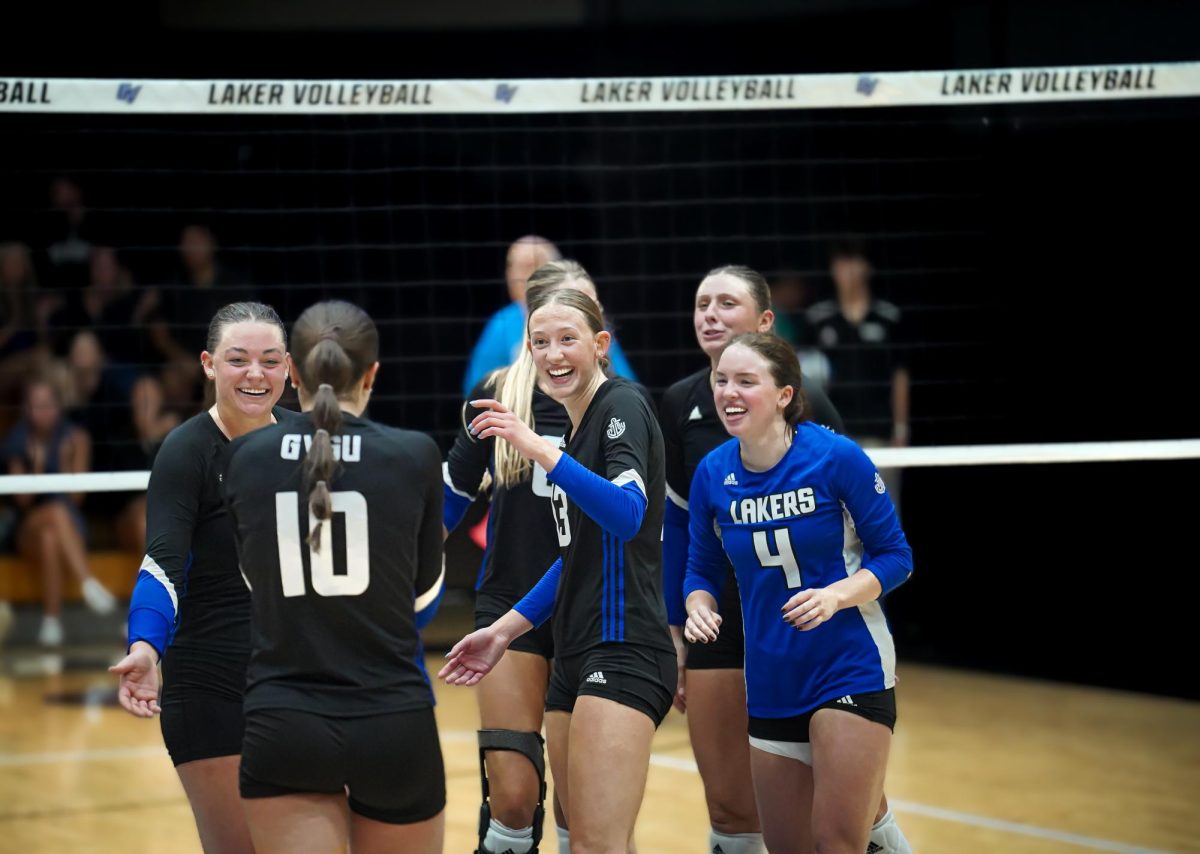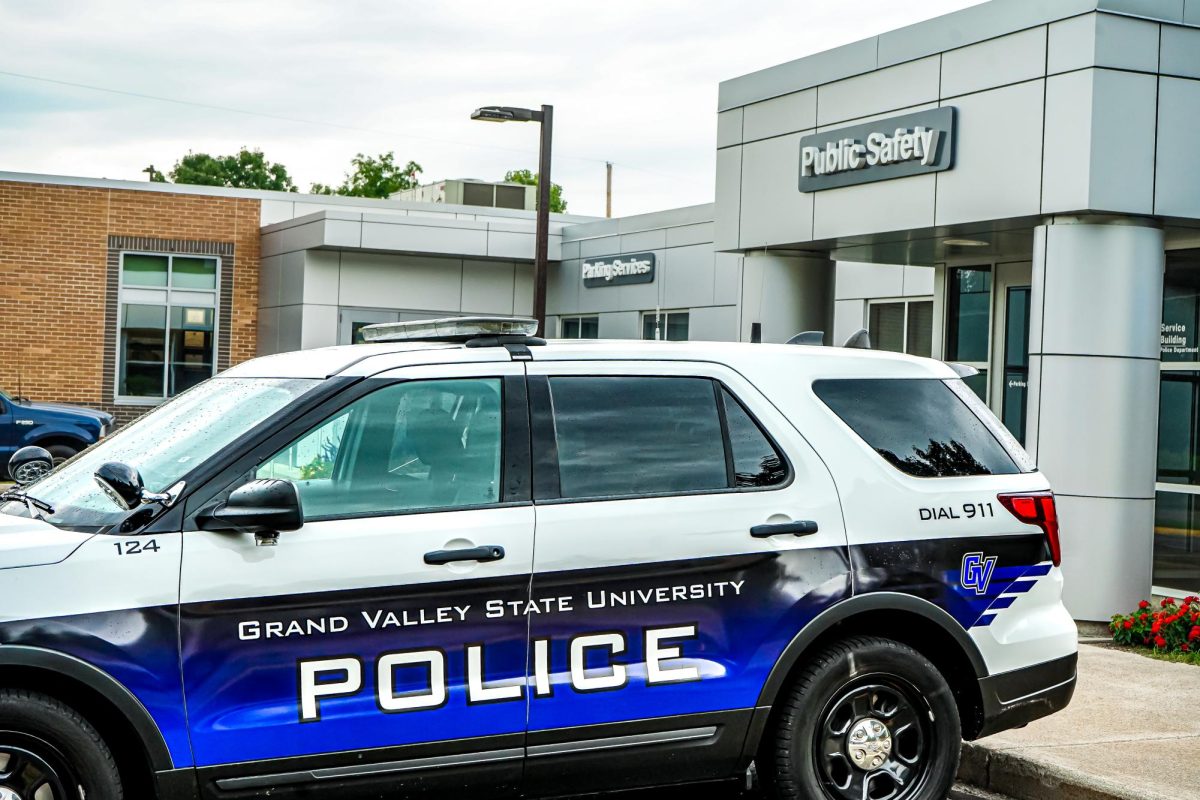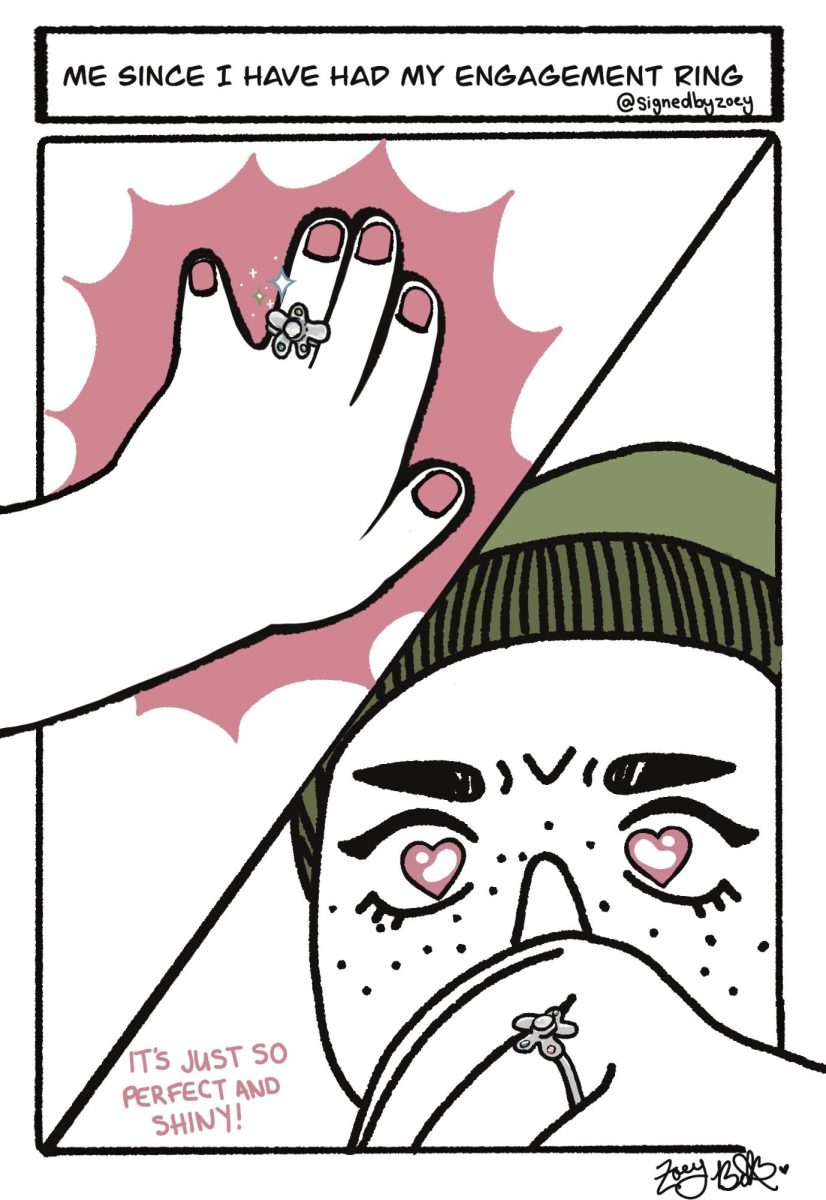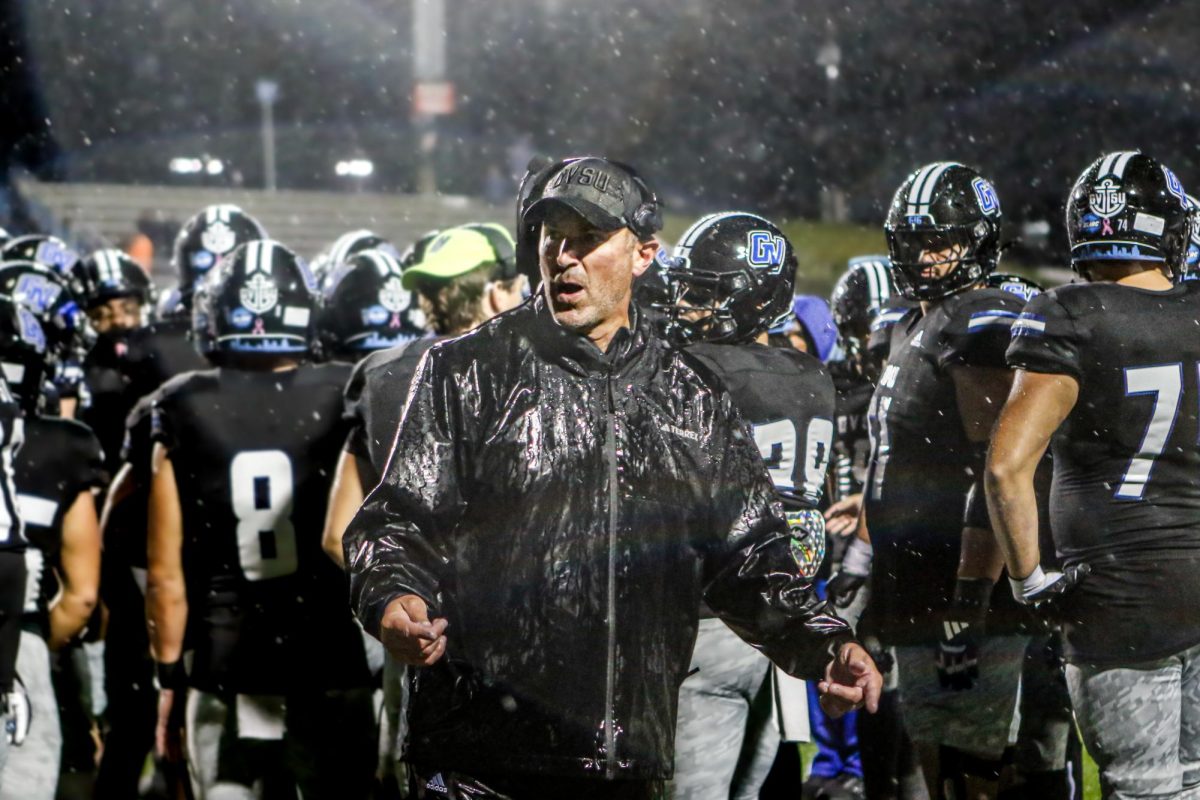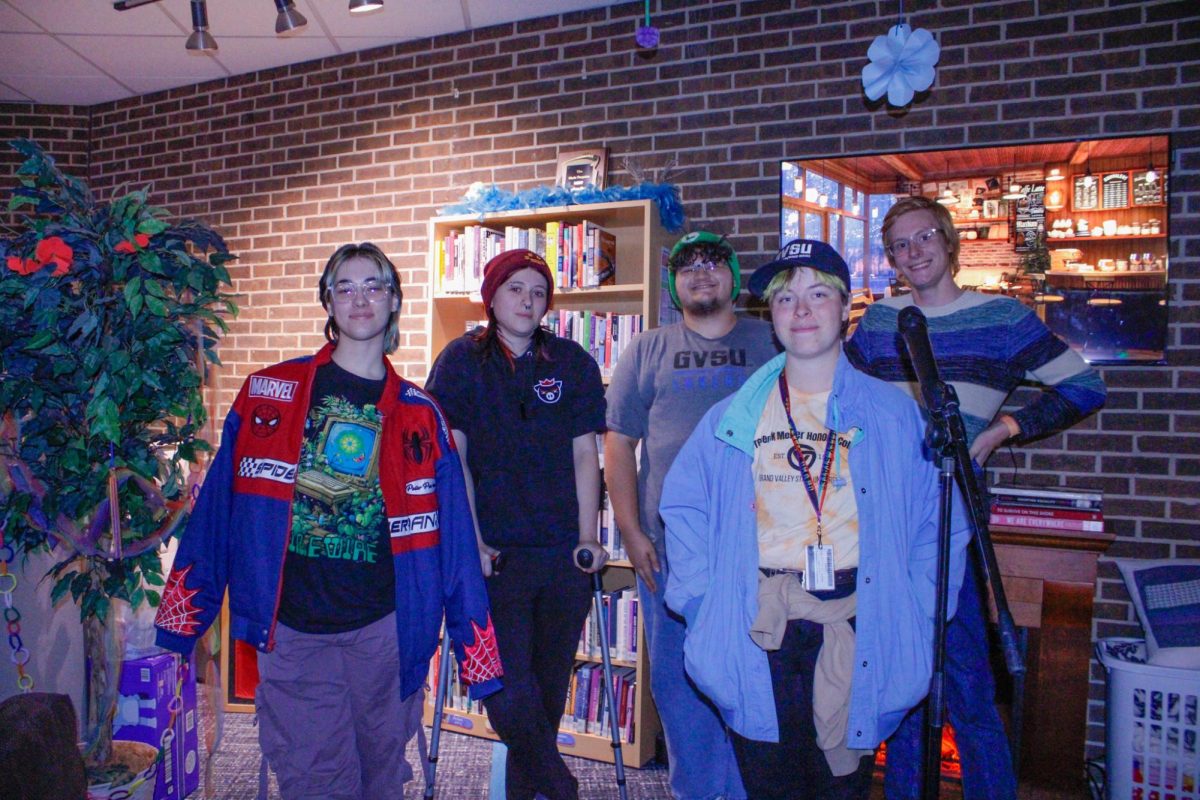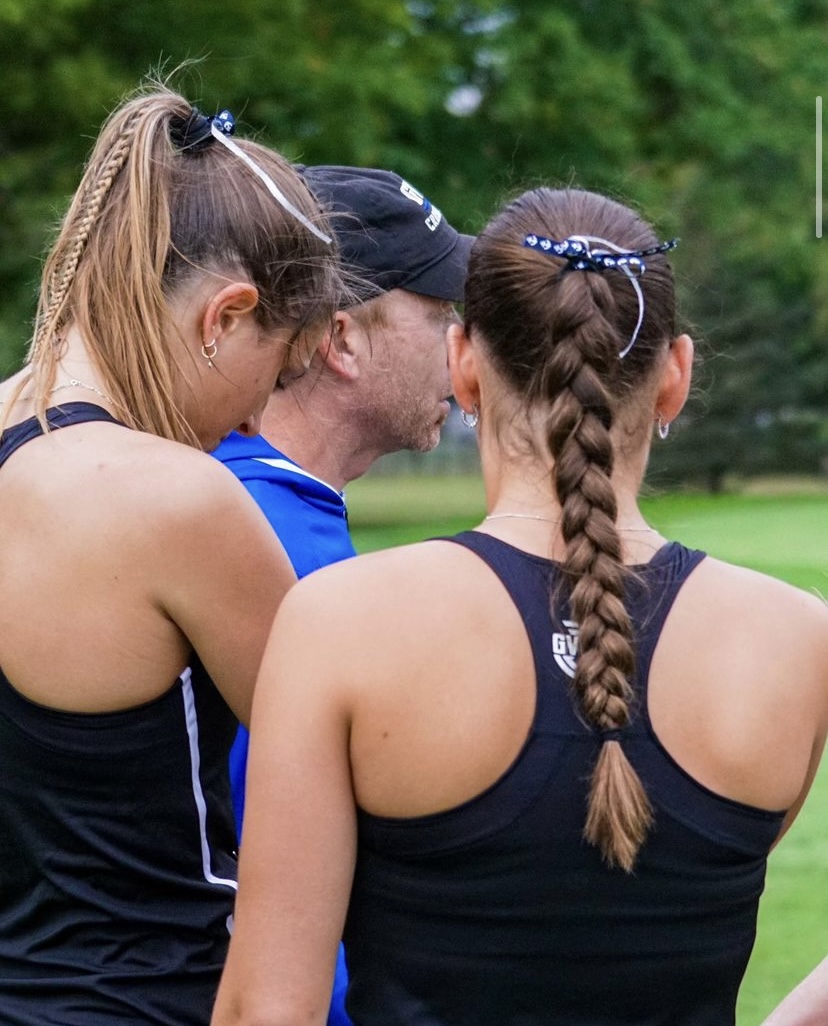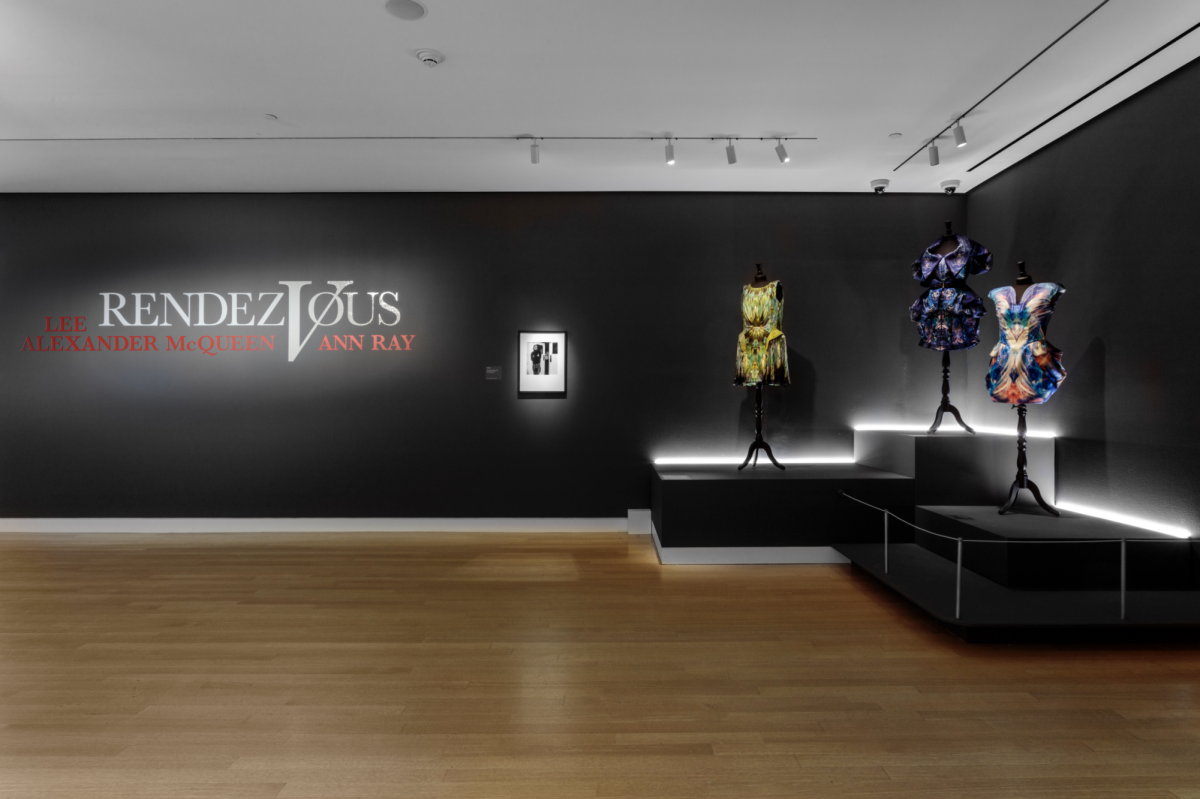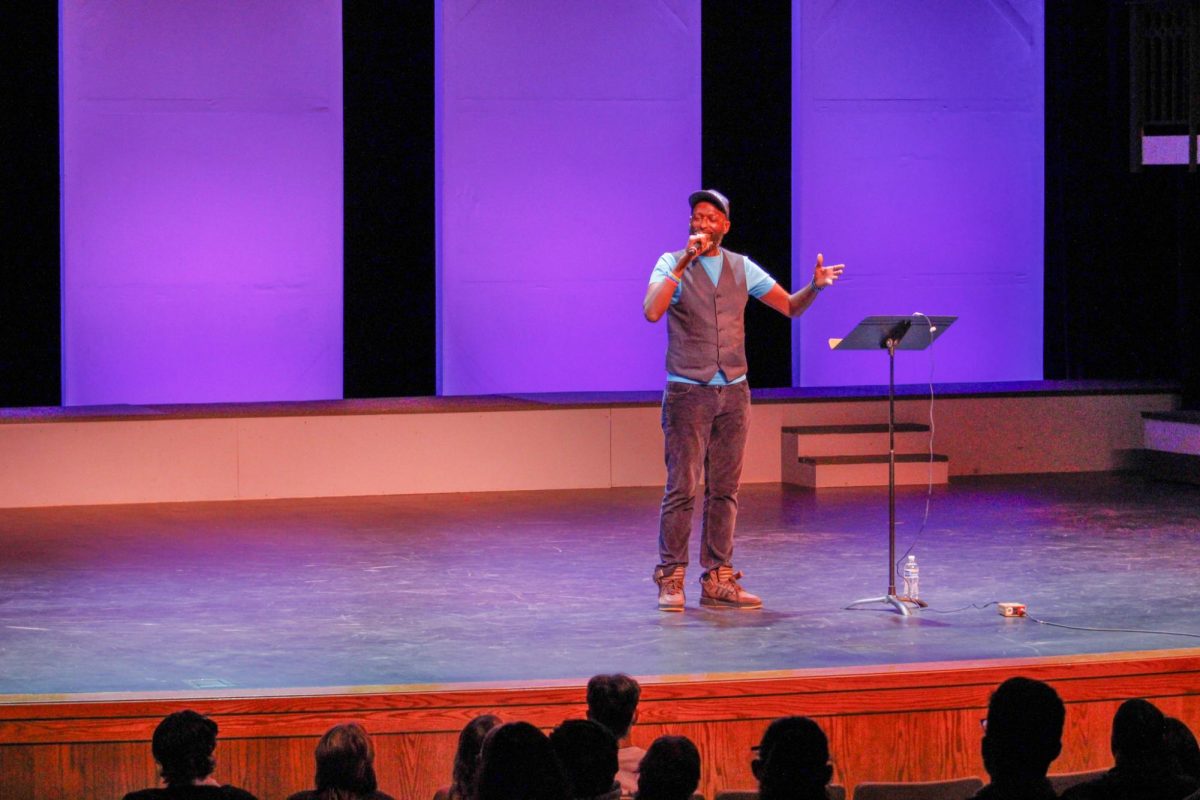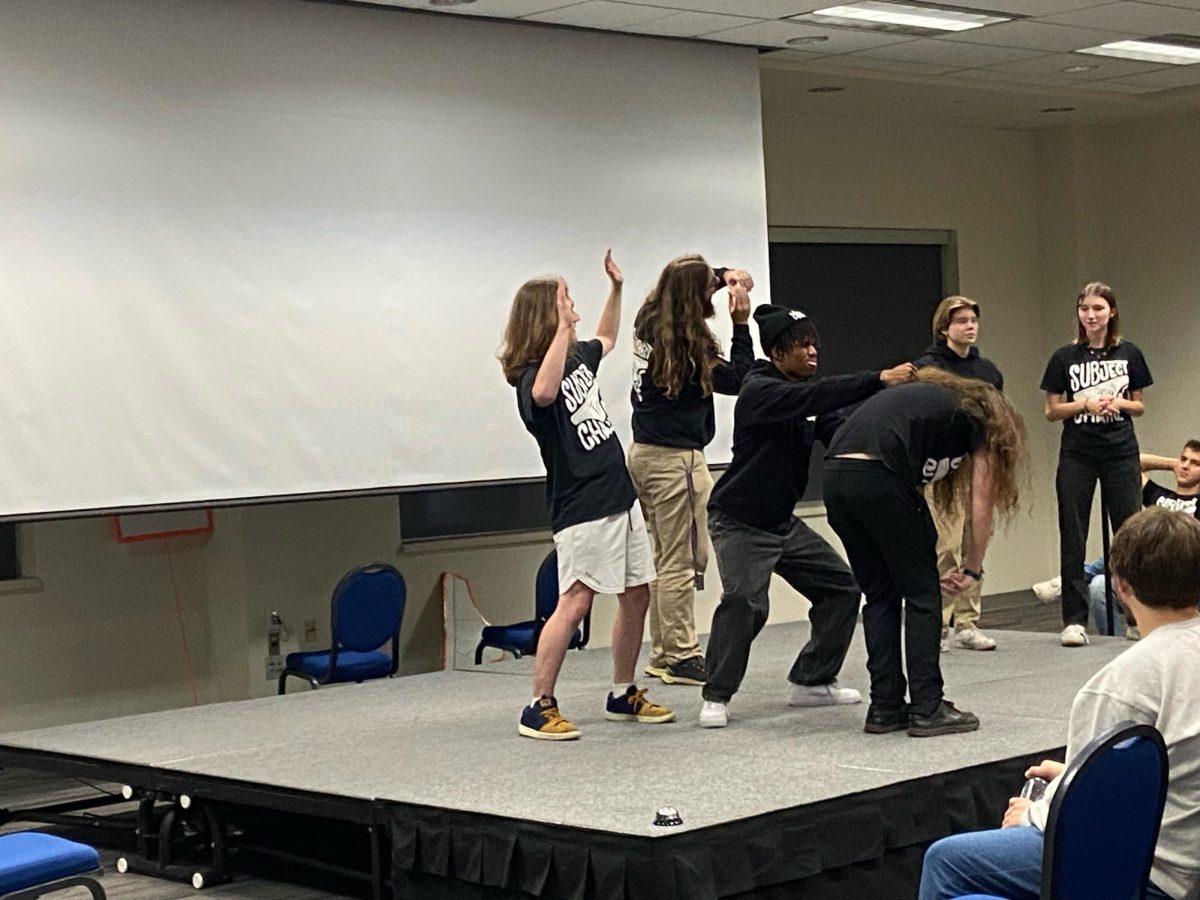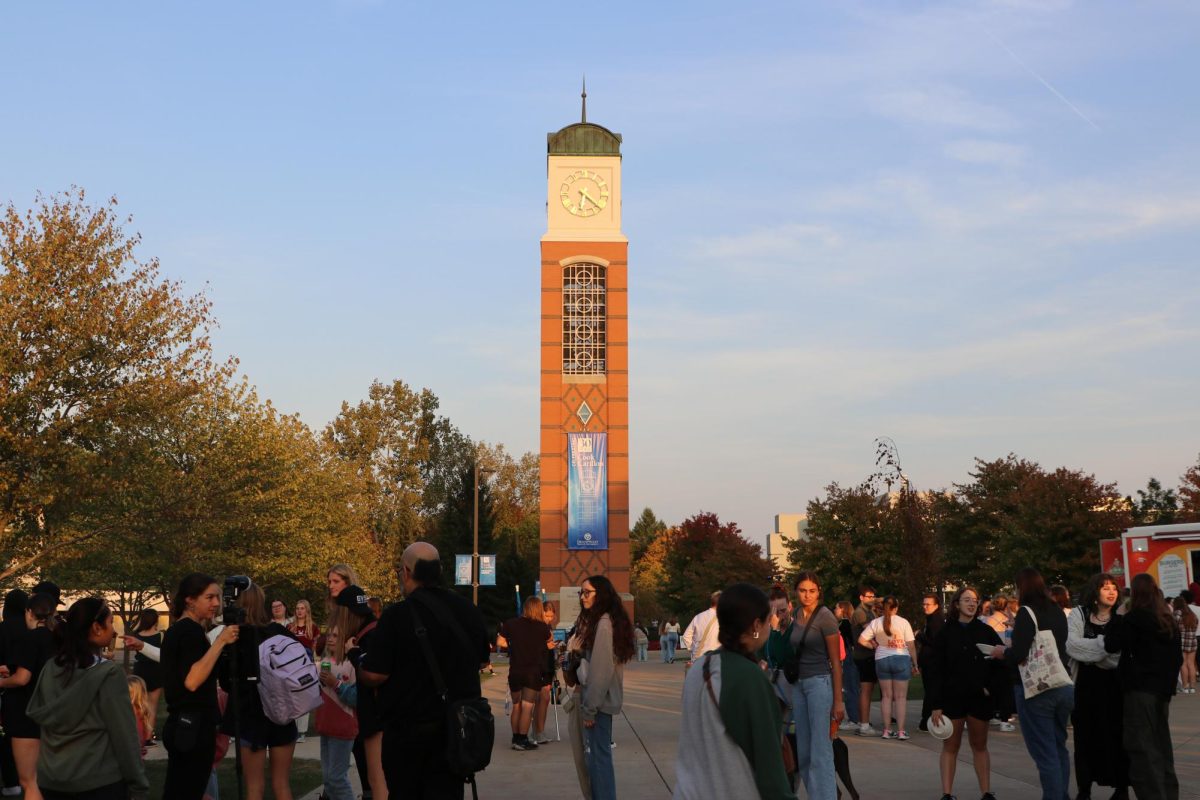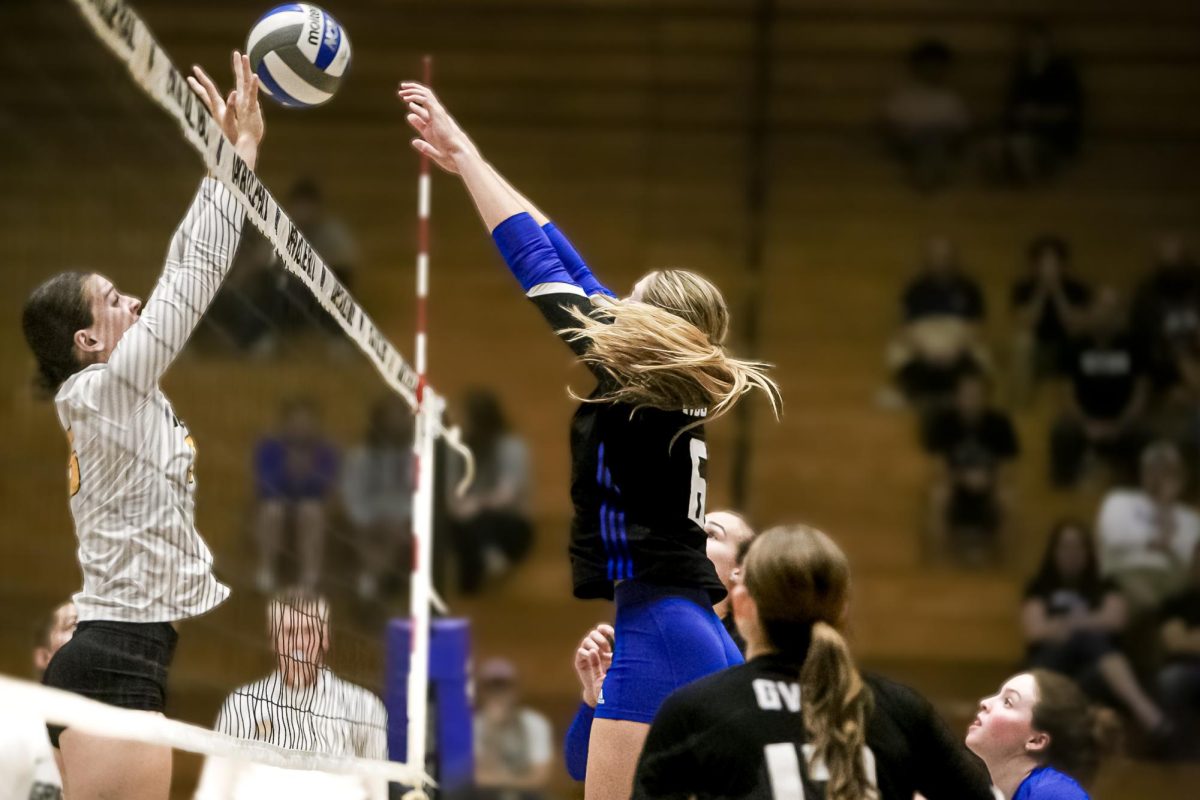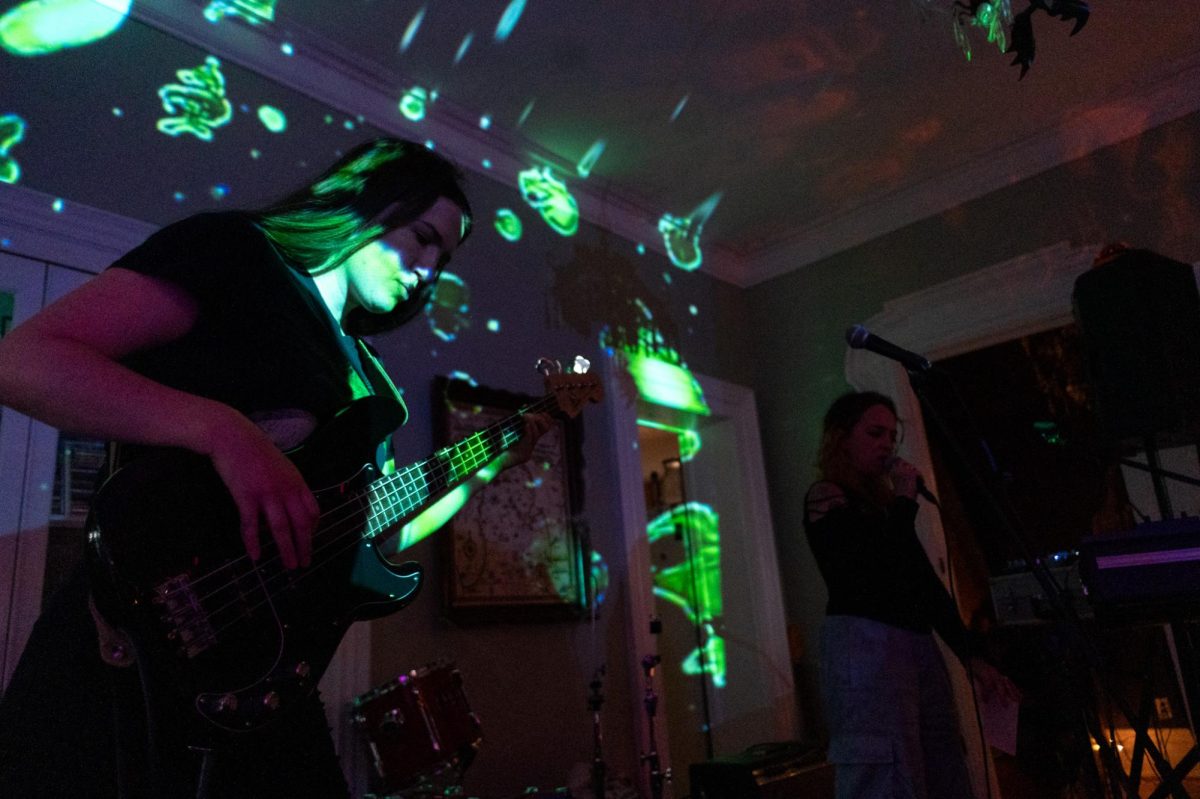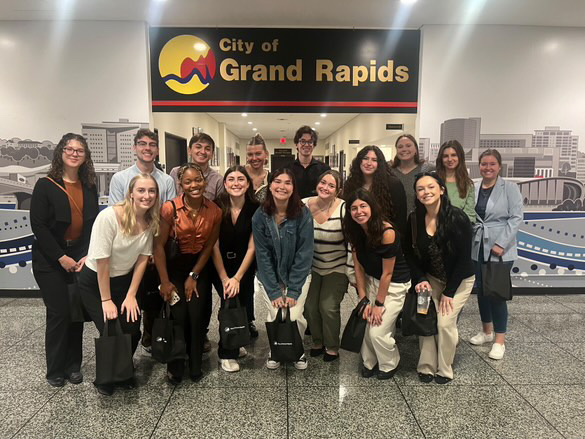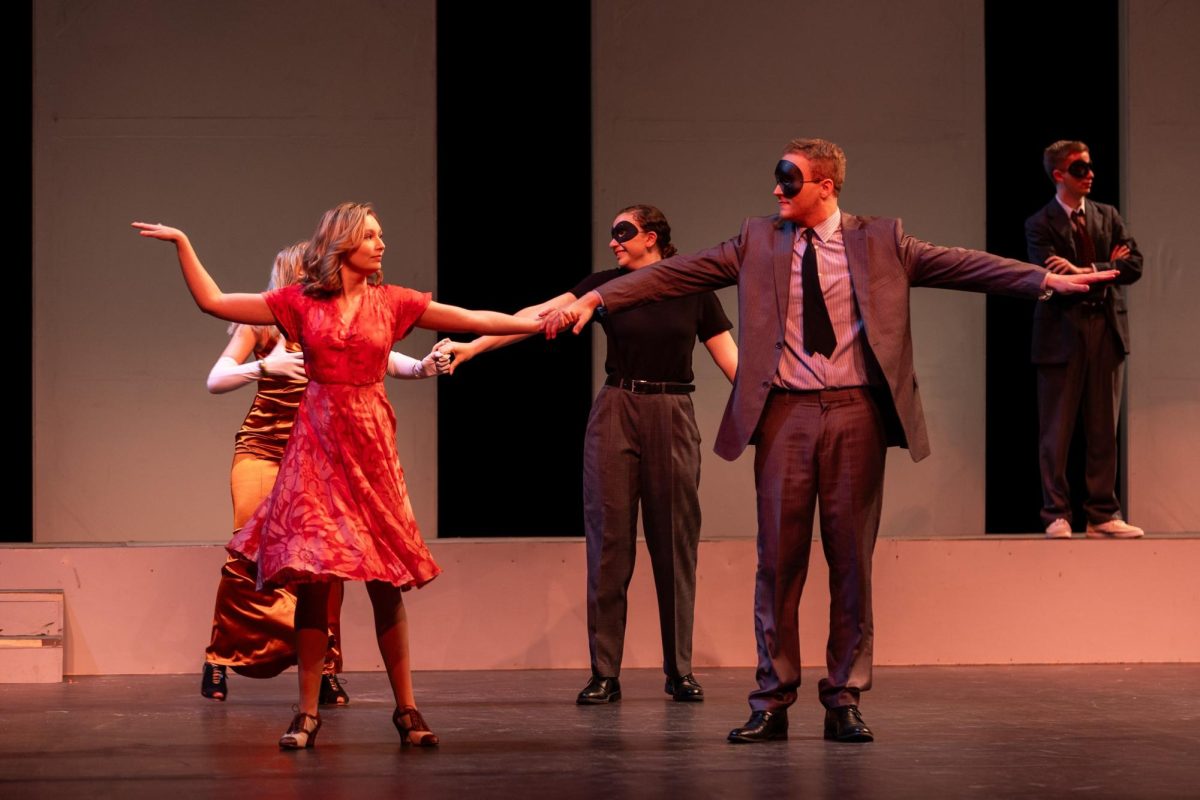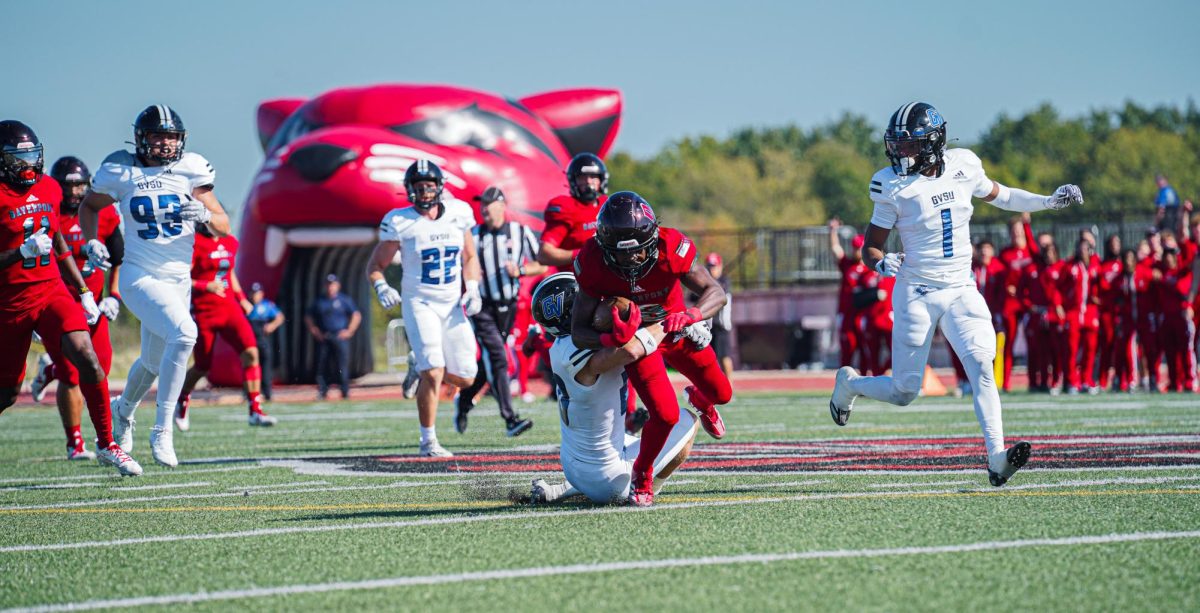Dreamer, mathematics professor speaks on her journey
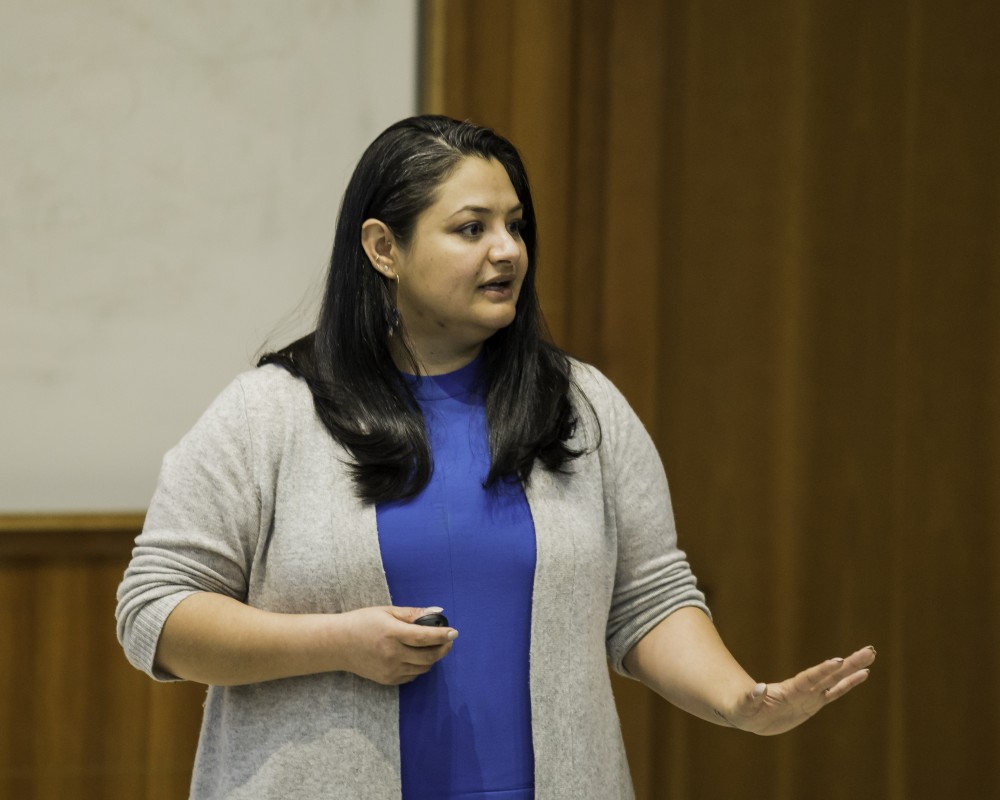
DR. PAMELA E. HARRIS. GVL / Leah Kerr
Apr 1, 2019
On March 26, professor Pamela Harris spoke to Grand Valley State University professors and students about her journey into the United States, discovering her love for mathematics and the people who helped her along the way.
Harris, who has published over 40 research and peer reviewed publications in algebra and other mathematics, has given over 80 research talks and done research with more than 30 undergraduate students. Harris had taught at West Point Military Academy for four years before accepting a position at Williams College.
“(Teaching mathematics as a minority) still has a huge emotional toll on me,” Harris said. “(To complete the process of tenure and promotion) I have to have 40 papers. My teaching scores have to be astronomical. I have to win national teaching awards so I am comparable to a mediocre white man.”
A native of Guadalajara, Mexico, Harris recalled her love for traveling, and her ability to achieve her dream early on when she and her family moved to California when she was just eight years old. Although, her parents hoped she would earn a better education there, the finances in California were similar to Mexico, so they moved back and eventually found themselves in Milwaukee, Wisconsin when she was twelve years old.
Graduating high school was a huge deal, as Harris’ parents only finished ninth grade in Mexico. Being undocumented when their visa ran out, Harris found it challenging to attend and afford a college education. With her passion and talent in art, she said she decided to become an art teacher.
“I found, in art, a venue in which I could pour my soul into,” Harris said. “It gave me a way to escape. Hobbies are really powerful… I didn’t have to spend every waking moment trying to figure out what I wanted to do for the rest of my life. I could at least focus on finishing this particular piece.”
She was placed at a seventh grade math level in college. Sitting in her Intermediate Algebra course, she didn’t believe her professor when she said numbers multiplied and added to different things. Her kindness from her professor is still a respect she passes on to GVSU professors.
“As a professor, your words and your tone matter. We meet our students where they are at and we help them build up.” Harris said.
To take more math classes, Harris transferred to Marquette University and completed an independent study with one of her professors who inspired her to keep learning.
“Encourage your students,” Harris said. “They may end up doing really well in something you know they’re good at, but they still don’t know.”
As a graduate student at University of Wisconsin-Milwaukee, she married her active military husband and had a daughter. Harris said this was another challenging time of her life, but her adviser and mentor continued to tell her to focus on math.
They would meet in coffee shops while her daughter was napping and spend two hours doing math together. Harris said she now understands “focus on the math” meant focusing on the things she could control in her life.
The second part of Harris’ discussion addressed the importance of professors and universities welcoming undocumented students.
“Remember that there are undocumented students,” Harris said. “They need our help. Most of them were brought here as children by absolutely no choice of their own. We should embrace the people (who) are a part of our community.”
She said students and professors need to build welcoming environments, such as putting the symbol for the undocumented — a butterfly — on their door or mentioning they don’t discriminate in their syllabus. With several ways to support undocumented students, Harris said that providing a range of resources is crucial.
“This was one of the first times I’ve been to a presentation from someone who was undocumented and who went through the entire process,” said sophomore Rebeca Barajas. “It was nice to get a perspective from a minority who (has) made it very far. I was very inspirational to see someone I can relate to could go through all of those life challenging moments. The role that she plays where she works, we also have that support system here and it was nice to see that there’s different institutions across the country that believe in what she does as well.”



